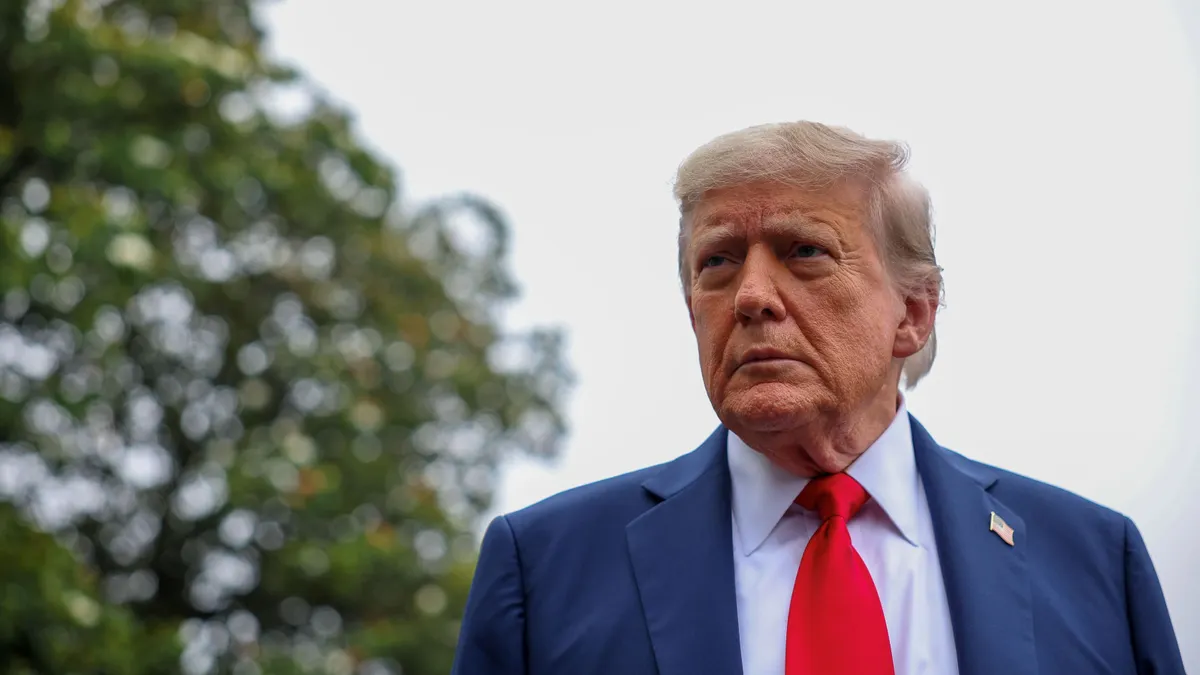Penny Lee is the president and CEO of the Financial Technology Association. Ji Hun Kim is the CEO of the Crypto Council for Innovation.
The ability of Americans to access and use the financial tools of their choice is under threat. In a coordinated campaign, the nation’s largest banks are working to shut out fintech and digital asset competition in an attempt to reassert control over how Americans access their own money. The new playbook: price-gating access to a consumer’s personal data and online financial tools, will ultimately limit consumer choice and promote debanking. This isn’t about protecting security — it’s about protecting profits and chilling competition and innovation.
The Trump administration has made clear its commitment to empowering the American entrepreneur and eliminating barriers to innovation. From stablecoins to tax policy, this Administration has demonstrated a willingness to champion policies that reward a much-needed evolution to stagnant legacy models. We can’t let big banks dictate and gatekeep which apps and services survive, thereby undermining the Administration's vision to ensure a golden age of innovation in the U.S.

These anti-competitive tactics are exactly what the U.S. open banking rule, known as Section 1033, was designed to prevent. As the Administration moves to issue an executive order on debanking, protecting consumers’ ability to access and share their financial information should be a top consideration to ensure that a consumer is not left without options.
Passed by Congress and initiated under the first Trump administration, the open banking rule guarantees Americans the right to access and share their financial information in bank accounts with other apps, products, and services, including digital assets. Now, some of the nation’s most powerful banks are taking advantage of regulatory uncertainty to impose exorbitant fees for consumer data access.
Because the fintech and digital assets industries rely on connections to traditional banks to onboard or offboard funds, any disruption to that access can jeopardize American consumers’ ability to pay bills, move money, or access the financial tools they rely on, including digital asset wallets. This isn’t theoretical; we’ve seen it before, and it’s happening again. Whether it’s fintech platforms or emerging stablecoin systems, all require access to the traditional banking layer to provide the services their customers demand. Without the protections of the 1033 rule, big banks will charge Americans looking to use their information to move, transfer, or invest their own hard-earned money.

The reality is that past U.S. policy already lags far behind other nations when it comes to embracing digital transformation. Several leading economies have adopted open banking rules, like the UK, Brazil, Singapore, Japan, and Canada, and many are racing forward with proactive digital asset frameworks aimed at building trust. If we weaken open banking rules, we risk being left behind and tied to a legacy system that doesn’t meet Americans’ needs. The recently passed stablecoin legislation, the GENIUS Act, signed into law by President Donald Trump, is a vital step forward, and one that should not be undermined by those seeking to entrench the status quo, while keeping Americans captive to legacy providers.
As the rule is reopened, the Administration has an opportunity to further strengthen the foundation of fintech and digital assets by reaffirming consumers’ freedom to use their data and access the financial services they want — without exorbitant fees. Embracing open banking not only protects consumer choice and market competition, it also ensures that the U.S. remains at the forefront of financial innovation and economic opportunity.













